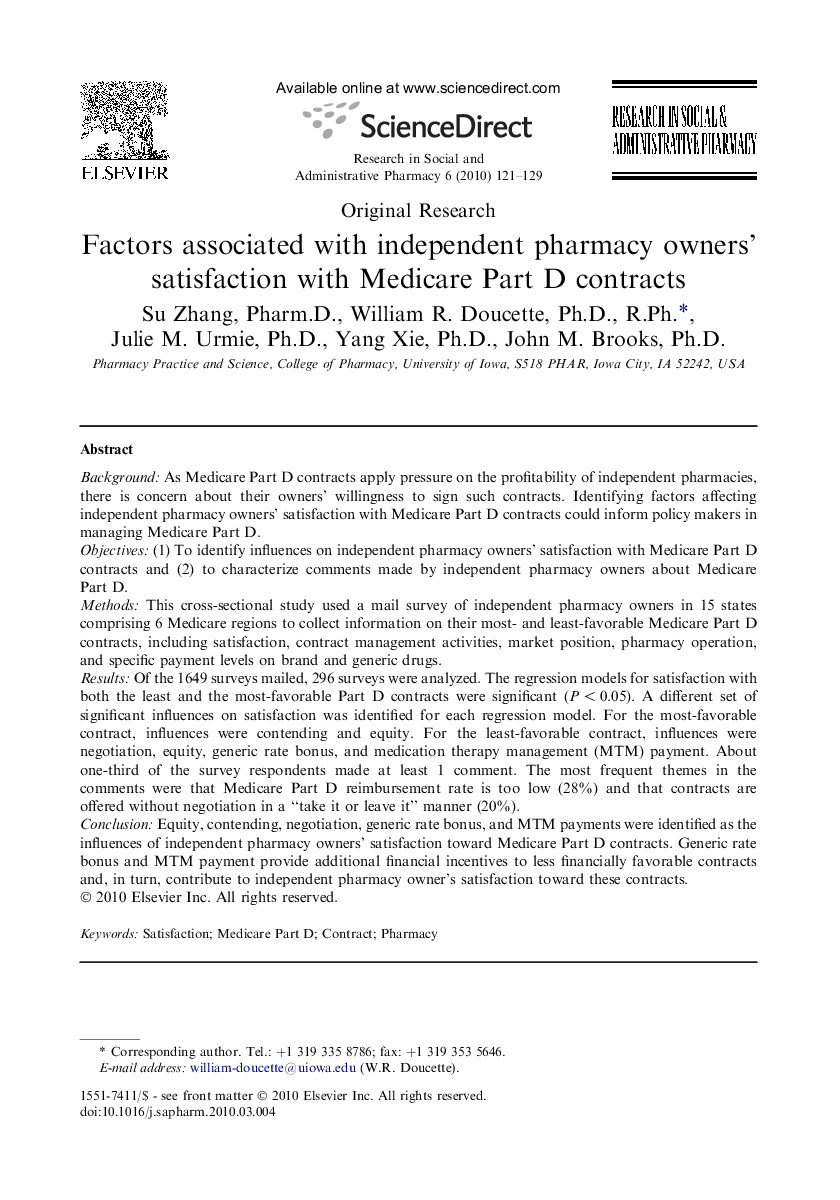| Article ID | Journal | Published Year | Pages | File Type |
|---|---|---|---|---|
| 2509120 | Research in Social and Administrative Pharmacy | 2010 | 9 Pages |
BackgroundAs Medicare Part D contracts apply pressure on the profitability of independent pharmacies, there is concern about their owners' willingness to sign such contracts. Identifying factors affecting independent pharmacy owners' satisfaction with Medicare Part D contracts could inform policy makers in managing Medicare Part D.Objectives(1) To identify influences on independent pharmacy owners' satisfaction with Medicare Part D contracts and (2) to characterize comments made by independent pharmacy owners about Medicare Part D.MethodsThis cross-sectional study used a mail survey of independent pharmacy owners in 15 states comprising 6 Medicare regions to collect information on their most- and least-favorable Medicare Part D contracts, including satisfaction, contract management activities, market position, pharmacy operation, and specific payment levels on brand and generic drugs.ResultsOf the 1649 surveys mailed, 296 surveys were analyzed. The regression models for satisfaction with both the least and the most-favorable Part D contracts were significant (P < 0.05). A different set of significant influences on satisfaction was identified for each regression model. For the most-favorable contract, influences were contending and equity. For the least-favorable contract, influences were negotiation, equity, generic rate bonus, and medication therapy management (MTM) payment. About one-third of the survey respondents made at least 1 comment. The most frequent themes in the comments were that Medicare Part D reimbursement rate is too low (28%) and that contracts are offered without negotiation in a “take it or leave it” manner (20%).ConclusionEquity, contending, negotiation, generic rate bonus, and MTM payments were identified as the influences of independent pharmacy owners' satisfaction toward Medicare Part D contracts. Generic rate bonus and MTM payment provide additional financial incentives to less financially favorable contracts and, in turn, contribute to independent pharmacy owner's satisfaction toward these contracts.
